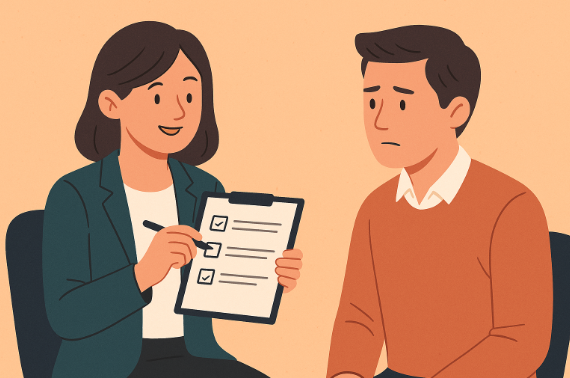If you have a long-term illness, disability, or mental health problem, the Personal Independence Payment (PIP), a UK disability benefit, can help with additional living expenses. To receive PIP, you need to answer specific questions in an assessment, and points are awarded based on how your condition affects your daily life and mobility. Understanding PIP questions and points is key to securing the right level of support.
What is PIP and how does the points system work in the UK?
PIP is made up of two components:
-
Daily living component – for help with regular duties such as cooking, washing, or managing medicines
-
Mobility component – for assistance with travelling and organising trips
Depending on how many points you receive, you can either receive the basic rate or the enhanced rate.
How many points are needed?
-
Daily Living: 8–11 points (standard), 12+ points (enhanced)
-
Mobility: 8–11 points (standard), 12+ points (enhanced)
Disability campaigner Jane Young says: “The key to getting PIP is not your diagnosis but showing how your condition affects your daily function.”
What PIP questions will you be asked in the assessment?
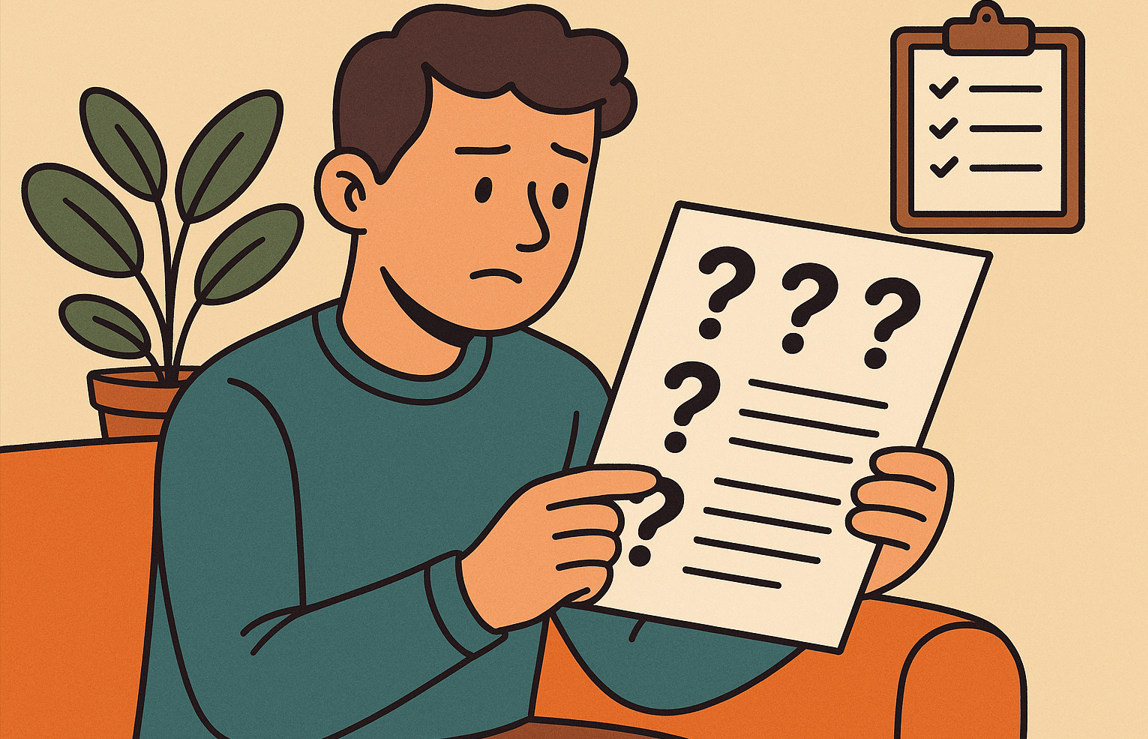
Although a health professional does the PIP evaluation, it is not a medical exam. Rather, it emphasises how your illness affects your day-to-day activities. A combination of mobility and everyday life questions will be posed by the assessor.
What are the most common daily living PIP questions?
Expect questions such as:
-
Can you prepare and cook a simple meal?
-
Do you need help eating or drinking?
-
Can you manage your medication without help?
-
Do you need support to wash, bathe, or dress?
What mobility-related PIP questions do assessors ask?
Your capacity to move about securely and freely is frequently the subject of mobility concerns. Common ones include:
-
Can you walk more than 20 metres without pain or fatigue?
-
Do you need support to go out or plan a journey?
-
Do you feel anxious or unsafe travelling alone?
How detailed should your answers to PIP questions be?
One-word or vague answers will not help you. Instead, you should:
-
Describe what happens when you attempt the task
-
Mention if you experience pain, fatigue, or distress
-
Explain how often you need support or prompting
For example, instead of “I can walk short distances”, a stronger answer would be:
“I can walk around 15 metres on flat ground, but after that I need to stop due to severe pain in my legs and lower back. It takes me several minutes to recover before I can move again.”
This level of detail gives the assessor a clear picture of your difficulties.
How should you explain PIP questions using real-life examples?
-
Instead of “I can cook”, say “I can cook, but I forget the hob is on and have burned food several times.”
-
Instead of “I can dress myself”, say “I need help with buttons and zips because arthritis makes my fingers stiff.”
-
Instead of “I can walk”, say “I can only walk 20 metres before pain forces me to stop.”
These examples demonstrate not just your talent but also the effects of your condition.
How are PIP points awarded for daily living activities?
Descriptors are used by the DWP to assign points for activities of daily life. Each activity is scored according to the level of help you need.
What are the PIP daily living descriptors and points?
| Activity | Descriptor example | Points |
|---|---|---|
| Preparing food | Needs help to cut food | 2 |
| Taking nutrition | Needs prompting to eat | 4 |
| Managing therapy | Needs supervision for medication | 1–8 |
| Washing & bathing | Needs help to wash | 2–8 |
| Dressing & undressing | Needs help with clothing | 2–8 |
| Communicating | Needs help understanding or expressing information | 0–12 |
| Engaging socially | Needs support to interact | 0–8 |
| Managing money | Needs help budgeting | 0–6 |
These scores are then totalled to decide if you qualify for the daily living component.
How does the DWP score eating, washing, and managing medication?
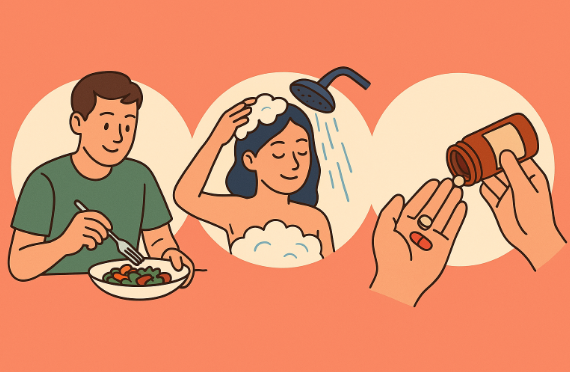
Each task is judged on whether you can do it safely, reliably, repeatedly, and in a reasonable time.
What does “safely, reliably, repeatedly, and in a reasonable time” mean in PIP assessments?
-
Safely → You can complete the task without risk of harm
-
Reliably → You can do it consistently without unpredictable issues
-
Repeatedly → You can manage the task as often as needed
-
Reasonable time → You can do it without taking far longer than most people
If you cannot meet these conditions, you should still score PIP points.
How are PIP points awarded for mobility activities?
Moving about and making travel plans are the main goals of the mobility component.
What are the PIP mobility descriptors and scoring system?
| Activity | Descriptor example | Points |
|---|---|---|
| Planning journeys | Needs prompting to go out | 4 |
| Following journeys | Cannot follow unfamiliar routes | 10 |
| Moving around | Cannot walk more than 20m | 12 |
How many points do you need for standard vs enhanced mobility?
-
Standard mobility: 8–11 points
-
Enhanced mobility: 12+ points
What mobility distances matter most in PIP scoring?
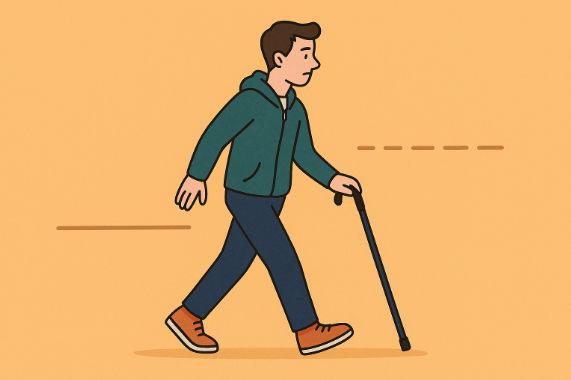
One of the most important aspects of mobility points is the distance you can walk:
| Distance walked | Points awarded | Impact on award |
|---|---|---|
| Over 200m | 0 | No mobility points |
| 50–200m | 4 | Possible standard |
| 20–50m | 10 | Likely standard |
| Less than 20m | 12 | Enhanced mobility |
How can you prepare strong answers for PIP questions?
Preparation can make a huge difference to your claim.
What evidence should you take to your PIP assessment?
-
GP letters and hospital reports
-
Care plans
-
Prescription lists
-
Statements from carers or family
How should you describe your condition and daily challenges?
-
Use real-life examples of accidents, difficulties, or times you needed help
-
Explain your bad days, not just your best days
-
Be clear if tasks take you much longer than average
What mistakes should you avoid when answering PIP questions?
-
Saying you can do a task when it causes pain or takes extra effort
-
Minimising your struggles
-
Forgetting to mention help you need from others
What evidence strengthens your answers to PIP questions?
Supporting documents carry weight with the DWP:
-
Medical evidence → GP notes, consultant reports, hospital discharge letters
-
Occupational therapist reports → detailing adaptations or support needs
-
Symptom diary → showing daily impact
-
Carer statements → describing the help you need
How does mental health affect PIP points?
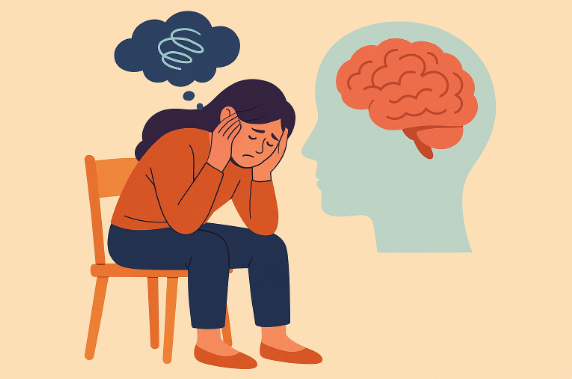
Many people mistakenly believe that PIP is only for physical disabilities, but mental health conditions are equally valid and often overlooked.
You may score points if you:
-
Need prompting to prepare or eat food because of depression, anxiety, or lack of motivation.
-
Struggle to manage medication due to memory problems or concentration difficulties.
-
Require help to engage socially because of conditions like autism, PTSD, or social anxiety.
-
Avoid leaving home alone due to panic attacks, paranoia, or agoraphobia.
Example: If you avoid leaving the house without support due to severe anxiety, this can meet descriptors for mobility points.
How can you challenge a PIP decision?
The first step is to request a Mandatory Reconsideration (MR) within 1 month of receiving your decision letter. This means asking the DWP to look at your claim again.
What is a mandatory reconsideration and how does it work?
-
You can send additional evidence such as GP letters or care diaries.
-
Another DWP decision-maker reviews your case.
-
They may increase your points without the need to appeal further.
When should you appeal to a tribunal for your PIP claim?
If the MR still doesn’t change the decision, you can appeal to an independent tribunal. Tribunals are run by judges and medical professionals who are separate from the DWP.
Success rates are high — around 70% of claimants win at tribunal, especially when they have strong evidence.
What should you do if your PIP claim is refused?
If you are refused PIP altogether, it’s important not to give up. Many people are wrongly denied the benefit.
Steps to take:
-
Read the decision letter carefully – Understand which descriptors they scored you on.
-
Request a written statement of reasons – This explains how they reached their decision.
-
Submit extra evidence – Such as medical notes, symptom diaries, or carer statements.
-
Request a Mandatory Reconsideration – Do this within the deadline.
-
Appeal to a tribunal if needed – Where you stand a much higher chance of success.
Having welfare rights advice, such as from Citizens Advice or a disability charity, can also greatly improve your chances.
How can a symptom diary help you score the right PIP points?
-
Record how your condition affects you across days
-
Note times you needed help, couldn’t complete a task, or had to rest
-
Show differences between “good days” and “bad days”
-
Present diary entries as evidence during assessment or appeal
What types of PIP assessments are used today?
-
Face-to-face → at assessment centres
-
Telephone assessments → widely used since COVID-19
-
Paper-based assessments → if evidence is strong enough, no interview needed
How does PIP compare between standard and enhanced awards?
| Component | Standard award | Enhanced award |
|---|---|---|
| Daily Living | 8–11 points | 12+ points |
| Mobility | 8–11 points | 12+ points |
Conclusion: Why understanding PIP questions and points is essential
The PIP points system is complex, but breaking it down into descriptors makes it clearer. Your answers in the PIP assessment must show how your condition affects daily living and mobility. Providing detailed examples, medical evidence, and a symptom diary will increase your chances of scoring the right number of points. With preparation, you can secure the financial support you need.
FAQs
Do mental health conditions score PIP points?
Yes, for difficulties with planning, following journeys, or daily tasks.
Can you get PIP without a face-to-face assessment?
Yes, some claims are decided on paperwork or telephone assessments.
How often is PIP reviewed once awarded?
Reviews usually happen every 2–5 years, depending on your condition.
What happens if you don’t get enough PIP points?
Unfortunately, many people are refused PIP or awarded fewer points than they deserve. If this happens, you have options.

I’m Adam Milne, a business writer and co-author at UKBusinessMag.co.uk. I’m passionate about simplifying complex topics—whether it’s tax, startup strategy, or digital marketing—so that entrepreneurs can take action with confidence. With years of experience in small business consultancy, I bring a practical perspective to every piece I write, helping readers turn ideas into results.

